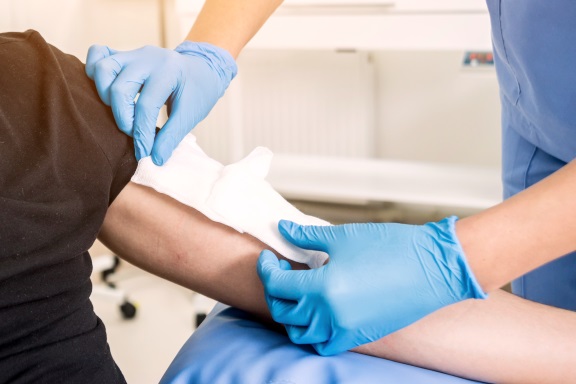Certified Wound Care Nurse Helped Save My Foot
James W., Cyrus, MN
My story starts with orthopedic surgery to fuse my right heel at the University of MN Health Clinic in Minneapolis. Kara Mrnak, RN and CWOCN at Glacial Ridge Hospital, became involved after the second operation and placed a wound VAC on my open wound. Kara’s care along with my surgeons helped me keep my foot. Nurse Kara Mrnak did a great job considering she couldn’t observe the wound standing next to the surgeon. Thank you, Kara!



